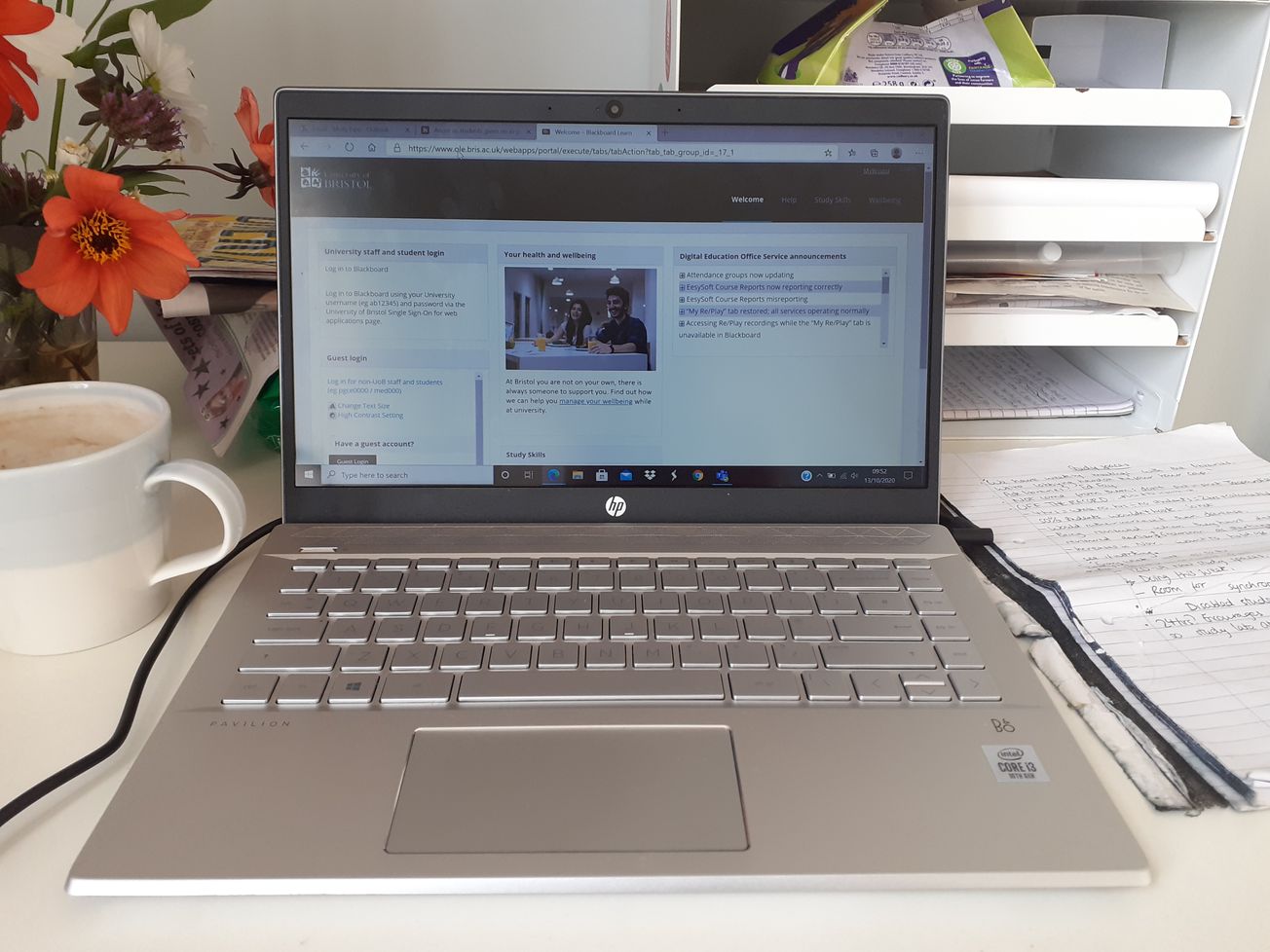By Caitlin Palmer O'Shaughnessy, First Year, Social Policy and Sociology
In the space of the past six months the world has drastically changed. Social distancing is now part of our everyday vocabulary and the go-to phrase for leaving the house has evolved from ‘have you got your keys?’ to ‘have you got your mask?’.
Coronavirus has changed how we live, and universities have had to adapt how they teach accordingly. Most have turned to the method of online teaching.
Bristol has decided to take a ‘blended learning’ approach, meaning all lectures will be online for the whole year, whilst seminars and tutorials will be taught in person wherever possible.
Like many, I am left wondering how this will work. Online learning presents a plethora of challenges. Will we really be able to learn effectively? Are we getting our money’s worth? And how on earth are practical courses such as Medicine, Theatre and the Sciences supposed to function?
Not to mention the loss of the social aspect of in-person teaching. At least those of us in second year and above will have had the chance to get to know others on our course and form friendships, but for incoming freshers this will be virtually – pardon the pun – impossible.
Obviously, given the circumstances, teaching must be online. It would be unfair and unsafe to teach in person. Having said that, online teaching is a whole new ball game.
It is vital that online teaching is administered in a way that involves regular student engagement in order to ensure students feel like they are getting the most out of this year.
Online University is on the rise, and contrary to popular belief, can be highly effective. Minerva Schools at KGI is a University programme based in San Francisco.
What distinguishes Minerva from other universities is that it is taught solely online. Despite sounding somewhat suspicious, some believe Minerva to be on par with Oxbridge.
Not enough students have graduated from Minerva to be able to judge its success, but as a University about to embark on a year of mostly online teaching Bristol could definitely learn a thing or two.
For some courses however, no matter what modifications are made, online learning is nearly impossible.
Theatre and Music rely on practical workshops to form a major part of their teaching and assessment and Science students carry out experiments in University owned labs, full of equipment that could never be replicated at home.
Attempting to carry out these courses online would be a disservice to students. Students taking these courses must be prioritised if and when in-person teaching is allowed to be carried out. Whilst this may seem unfair, given the current pandemic, those who can be taught online should be taught online.
Our desire for in-person teaching does not outweigh the need to protect those who are vulnerable
This is where I believe students have grounds to demand financial compensation. With most of next year’s teaching being carried out online the University could potentially not cost as much to run.
Additionally, the services we are paying for have undeniably changed. When we agreed to pay our tuition fees, online teaching didn’t even seem like a possibility. Whilst it’s true that if a student didn’t want to learn online they could have suspended their studies, for many this would not have worked.
By the time the true impact of coronavirus became known, most students had already signed housing contracts, meaning that even if they were to suspend their studies for a year they would still have to pay rent on a property in Bristol.
Bristol must do what is sensible and teach online
Given that online teaching en masse is unprecedented, so we do not know whether it will be as effective as in person teaching, students should have their fees reduced.
We must also not forget the benefits of in person teaching for our mental health. The little bursts of serotonin we get from bumping into friends in a lecture are important, and will be sorely missed as we lose the social aspect of our degrees.
It would be foolish for the University to ignore the effect that online teaching will have on our mental health, and for the year to be a success the University should further invest in student mental health services.
All lectures to be taught online from autumn academic term
Bristol UCU pass motion demanding all ‘unnecessary’ in-person teaching be moved online
Ultimately, our desire for in-person teaching does not outweigh the need to protect those who are vulnerable and manage the spread of coronavirus. Nothing has actually changed since University first went online in mid-March earlier this year.
There is no vaccine and infection rates are on the rise again. It is very possible that we will go into another lockdown, or will face a second spike of the virus as winter approaches. So, Bristol must do what is sensible and teach online.
Online teaching must be carried out in a way that ensures students are engaged and wellbeing needs are being met. The idea of online learning sounds off-putting, but we must be open-minded. Who knows, we may actually end up loving it…
Featured Image: Epigram / Molly Pipe
How are you finding online teaching?









